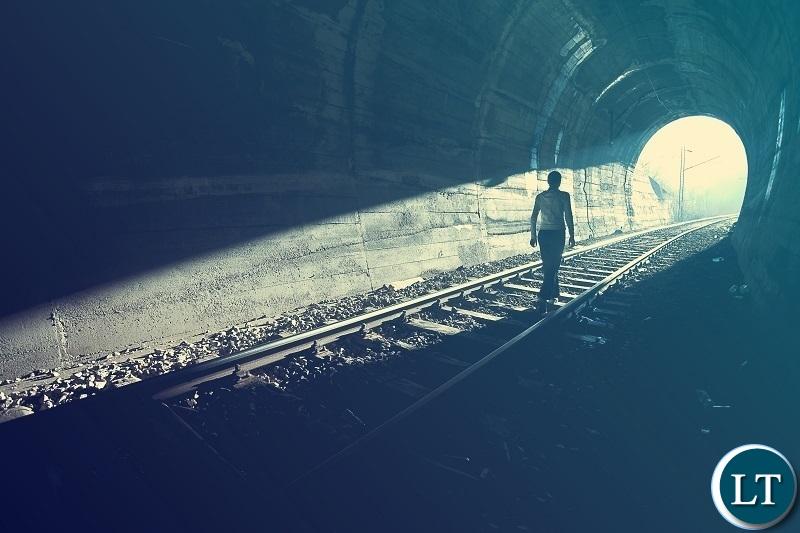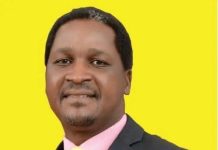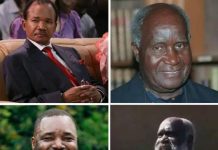Africa-Press – Zambia. The light at the end of the tunnel is no longer an approaching train but a single flickering ray of hope in each one of us. All we need to do, in unison, is to light up the tunnel that devours our honor as a people, our substance, and health even. An opportunity is beckoning us to teach ourselves how to enjoy the pure pleasures of rational thinking; of ingenuity out which those who are successful pluck their noble fruits.
Look at how pathetic we are, created as we were in God’s same image. What the “own image” scripture means is that as humans we are the same in our moral, spiritual and intellectual nature. So then why are we the low people at the totem pole?
Most African scholars impute the guilt of our failures to the activities of colonizers. Some evoke the father-son relationship where a father, rather than give the son fish, gives him poison. Is not true that when the colonizer showed us how to fish, he left the fishing rods and all we needed were worms with which to catch the fish? Didn’t he also teach the Indians who attained their independence in the same way? What’s the difference between them and us? Yet they are headed for First World status.
Where are we today? We are still a Third World country with a low human development index. We are an ideal commonwealth whose inhabitants exist under seemingly perfect infrastructure none of which is borne out of our imagination. We are like the cuckoo bird, the brood parasite that shamelessly leaves its eggs in another bird’s nest, letting her young be raised by entirely different species while claiming the nest to be hers.
It’s a shame really; a tragic phenomenon. We sit on inexhaustible mineral wealth worth trillions of dollars, clueless about how to dig deeper into our own earth, remove our god-given ore, and haul it to the processing site using our own factory-made conveyors, trains, shuttle cars, and flash smelting furnaces. This is the greatest enigma surrounding us as a people.
We are a people in Socrates’s the “Allegory of The Cave,” who have been chained to the wall of a cave all our lives. We hopelessly watch shadows that represent the fragment of the reality of looters ransacking our wealth. We cannot break the chains because we do not desire to leave the cave, for we know no other life but penury and alms.
Once upon a time, the Japanese people found themselves in a similar cave, their hands chained to the feudal wall of the Tokugawa Shogunate that for 264 years isolated them from the rest of the world. In 1868, the wind of change reminiscent of the one that blew across Zambia in the 1990s veered in a tide that sucked in the Shogunate and left on the shores of Japan a new government led by the youthful and transformative leader Meiji who believed Japan would not be able to develop if it did not modernize.
At the helm of his effort, Meiji who believed to modernize meant copying Western technology, turned to some of the best thinkers to help create reforms that would strengthen and unify Japan. In 1871, a high-powered delegation of think tanks left Japan for the United States of America and Europe seeking to learn first-hand the scientific and technological accomplishments of the West. They were keenly interested in observing schools, industries, military, and political systems.
The result was a new paradigm of a modern, industrialized Japan and the emergence of a great power, fashioned by Western scientific, technological, philosophical, political, legal, and aesthetic ideas. Today, Japan is the third leading country in the world for technology. It ranks right behind Finland and the United States. Japan spends over 3.5 percent of its GDP on education, innovation, and invention. In the same way, China and other successful Asian nations emulated Japan and sent their think tanks to the United States.
It is beginning to look like Zambia is on the same path. The election of Hakainde Hichilema has brought to the forefront a forward-thinking reformist who is touting democracy. President Hichilema’s rhetoric and action seem to define a democracy in which creative activities shape developmental norms and practices. American Philosopher John Dewey called it “creative democracy” and defined it as a way of life and an experience built on faith that puts a heavier emphasis on creativeness. “The task of [creative] democracy,” Dewey added, “is forever that of creation of a freer and more humane experience in which all share and to which all contribute.”
In the case of Japan, state-builders, academics, and politicians put their differences aside and rallied behind Meiji. They all believed that to see above the horizon they had to stand on the shoulders of giants. They understood that teamwork was the fuel that allowed common people to attain uncommon results. To become a world power, they appreciated rather than depreciated each other’s sweat and labor.
Conversely, we are the exact opposite. We depreciate rather than appreciate each other. This is our greatest tragedy that takes its worst toll on us. It is a counterproductive paranoid trait that has denied us the camaraderie to creatively employ new technologies that increase productivity. It is the reason we end up with low-end products unsuitable for the global market.
Our envy and spite are already at work. Last August we elected Hakainde Hichilema a man who campaigned on change. The unprecedented historic move took the world by storm. Accolades shot through the roof, earning us considerable admiration and respect. It is fair to say that President Hichilema is actively and creatively good for economic growth. It has since become clear that he is committed to advancing a far-reaching technology and innovation plan in his effort to provide a powerful engine for advancing market economic growth.
It is also fair to state that Hichilema understands harnessing the full power and potential of new technologies can improve the Zambian economy. He is already influencing growth through fiscal policy. It is good to see him invest in public goods, technology, pro-growth trade policies, and establishing new agencies, a move aimed at stabilizing the economy, creating jobs, and boosting manufacturing. But the truth of the matter is that however transformative Hichilema is he can’t whistle a symphony alone. He needs an entire orchestra comprising dedicated Zambians to play it.
Last year I stepped forward and pledged to support President Hichilema to prove that I was not a mere armchair critic sneering self-righteously from the comfort of my home. I desperately want to be among Zambians who strive to do the deeds; who spend themselves on a worthy cause; who in the end know that Hichilema’s triumph is ours as well. With this in mind, I have just completed a white paper explicating the creation of a US-based “Think-and-do” tank that will provide Zambians with a strong impetus to make a comprehensive understanding of American modern industrial, technological, economical, and educational systems and structures, all in the manner of Iwakura Mission.
To be called Zambia Development Institute (ZDI), the initiative seeks to help elevate Zambia’s level of development to modern world-class standards by assessing American ingenuity and making proposals to the president and government that will have vast effects on the subsequent advancement of our country.
To capture American ingenuity Zambian intellectuals need a front ringside seat in the American superpower arena to study firsthand Americans’ feats with a strong impetus to indulge in similar modernizing initiatives in Zambia. The raison d’être for ZDI is to mobilize academics in Zambia and the Diaspora so they can have direct access to know-how, expertise, research opportunities, lab space, and other incentives that enhance development.
Here, I am making an earnest appeal to Zambian intellectuals—researchers, analysts, legal practitioners, educators, innovators, and inventors, in the Diaspora and at home. Building a nation cannot be done by one person—the president. Henry Ford once said “coming together is beginning. Keeping together is progress. Working together is success.”
Teamwork is at the heart of my initiative. Friend and foe let’s walk through the dark tunnel hand in hand to get to that ray of hope. Let us make strategic steps towards industrial upgrading and longer-term economic transformation. We urgently need to plug Zambia into the global trading system and compete with stronger economies. By doing so we shall achieve significant poverty production and improved standards of living. The timing of this initiative and its potential influence on the development of Zambia cannot be ignored.
I pray that once the proposal lands on your desk, you will give it the attention it deserves. Your presidency is a make-or-break for Zambians. At stake are the very promises that you made on your campaign trail. The defining issue is to keep those promises alive, and ZDI is here to ensure your governance delivers your mission. I do not doubt that in you we have the right mover and shaker of this lovely country we call Zambia. Remember no one is coming to save us. We are on our own.
For More News And Analysis About Zambia Follow Africa-Press







